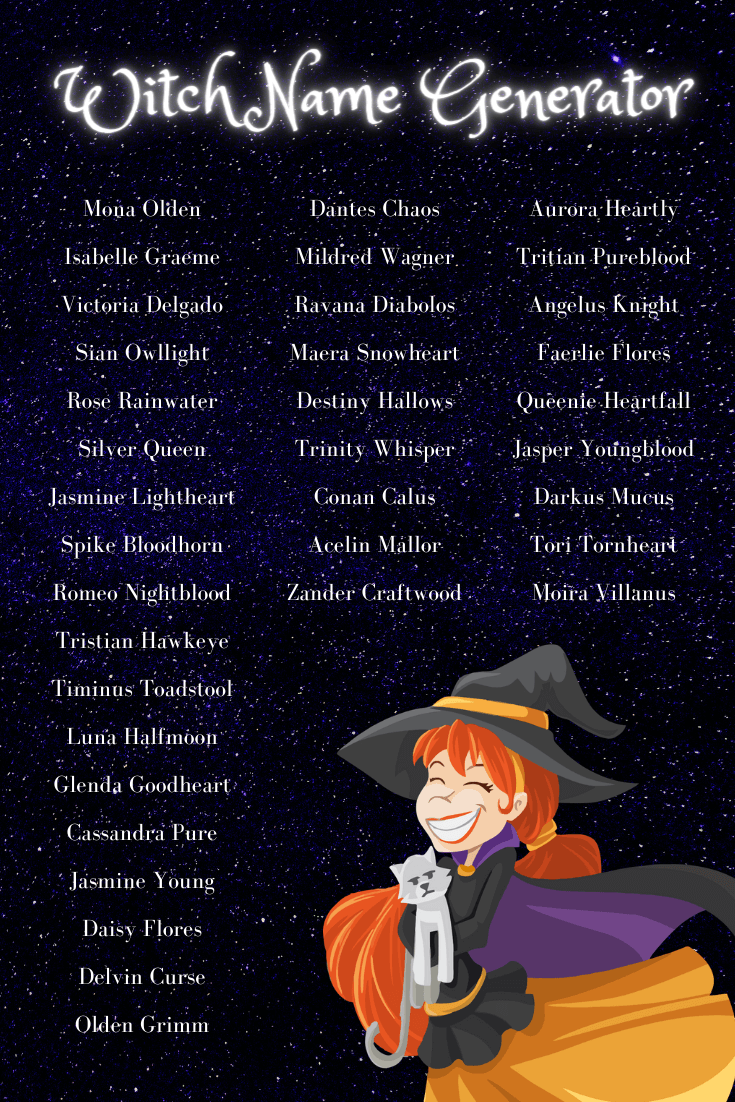In literature, film, and folklore, the portrayal of women has often oscillated between the benevolent and the malevolent, giving rise to a captivating exploration of evil female names. These names not only carry an aura of darkness but also evoke powerful imagery of female characters who wield their influence in sinister ways. As we delve into this intriguing topic, we will uncover the meanings, origins, and cultural implications of these names, revealing their impact on society's perception of femininity.
Throughout history, names have held significant power, often shaping the identity and perception of individuals. In the realm of evil female names, this power becomes even more pronounced, as they often embody traits associated with cunning, manipulation, and diabolical intent. Understanding the roots of these names can provide insight into societal attitudes towards women who defy traditional roles. In this article, we will explore the fascinating world of evil female names, examining their origins and the cultural narratives surrounding them.
Join us as we venture into the names that have become synonymous with villainy. From mythological figures to modern-day antagonists, evil female names serve as a reminder of the complex relationship between gender and morality. By the end of this exploration, you will gain a deeper appreciation for the stories behind these names and their lasting impact on popular culture.
Table of Contents
- Definition of Evil Female Names
- Historical Context of Evil Female Names
- Mythological Characters with Evil Connotations
- Literary Villains and Their Names
- Evil Female Names in Pop Culture
- Psychological Impact of Evil Female Names
- Cultural Implications of Evil Female Names
- Conclusion
Definition of Evil Female Names
Evil female names are often associated with characters who embody traits such as malice, manipulation, and betrayal. These names can evoke fear and intrigue, often leaving a lasting impression on audiences. They may originate from various cultures and languages, each carrying its own unique connotations and historical significance.
Characteristics of Evil Female Names
- Associations with darkness and malevolence.
- Historical precedents in folklore and mythology.
- Impact on societal perceptions of women.
Historical Context of Evil Female Names
To understand the significance of evil female names, it is essential to explore their historical roots. Names often reflect societal attitudes towards women, particularly in patriarchal cultures. Throughout history, women who defied norms were frequently labeled as witches or villains, leading to the creation of names that symbolize their perceived danger.
Examples of Historical Evil Female Names
- Medusa – A figure from Greek mythology known for her snake hair and petrifying gaze.
- Lady Macbeth – A character from Shakespeare's play who embodies ambition and manipulation.
- Elizabeth Bathory – A historical figure rumored to have tortured and killed young women.
Mythological Characters with Evil Connotations
Mythology is rich with female figures who have been cast as villains. These characters often wield power and influence but are portrayed as malevolent beings. Understanding these mythological figures can shed light on the origins of evil female names.
Notable Mythological Figures
- Hecate: The Greek goddess of magic and witchcraft, often associated with the darker aspects of the supernatural.
- Lilith: A figure from Jewish folklore, often depicted as a demoness who preys on newborns.
- Circe: A sorceress from Greek mythology known for her ability to transform men into animals.
Literary Villains and Their Names
Literature has introduced many iconic female villains whose names evoke a sense of dread and intrigue. These characters often embody complex motivations and serve as cautionary tales.
Famous Literary Villains
- Scarlett O'Hara: The protagonist of "Gone with the Wind," whose manipulative nature often leads her to morally questionable decisions.
- Queen of Hearts: A character from "Alice in Wonderland," known for her ruthless nature and obsession with beheading.
- Bellatrix Lestrange: A character from the "Harry Potter" series, notorious for her loyalty to Voldemort and her sadistic tendencies.
Evil Female Names in Pop Culture
In modern pop culture, evil female names have become an integral part of storytelling across various media. From films to television shows, these names often symbolize power and danger.
Impact of Pop Culture on Evil Female Names
- Increased visibility of female villains in mainstream media.
- Reinforcement of stereotypes associated with powerful women.
- Creation of memorable characters that resonate with audiences.
Psychological Impact of Evil Female Names
The perception of evil female names can have a profound psychological impact on individuals. Names carry weight, and the associations tied to them can influence how individuals are viewed in society.
Effects on Society and Individuals
- Stigmatization of women who defy traditional roles.
- Reinforcement of negative stereotypes associated with powerful women.
- Impact on self-identity for individuals bearing these names.
Cultural Implications of Evil Female Names
The cultural implications of evil female names extend beyond mere storytelling. They reflect societal attitudes towards women and power dynamics throughout history.
Shaping Cultural Narratives
- Highlighting the struggles faced by women in patriarchal societies.
- Encouraging discussions about gender roles and expectations.
- Challenging traditional notions of femininity and morality.
Conclusion
In conclusion, evil female names serve as a fascinating lens through which we can explore the complexities of femininity and morality. From their historical roots to their impact on modern culture, these names carry a weight of significance that transcends mere storytelling. As we reflect on the narratives surrounding these names, we can appreciate the intricate relationship between gender and power.
We invite you to share your thoughts on this topic. What are your favorite evil female names, and what do they mean to you? Feel free to leave a comment below or share this article with others who might find it intriguing.
Thank you for joining us in this exploration of evil female names. We hope to see you again soon for more captivating discussions!
Article Recommendations
- Uncovering Mario Lopezs Salary An Inside Look
- Discover Healthy Options At Food Lion Piney Orchard
- Brad Gerstner Age An Introduction To The Tech Titan


